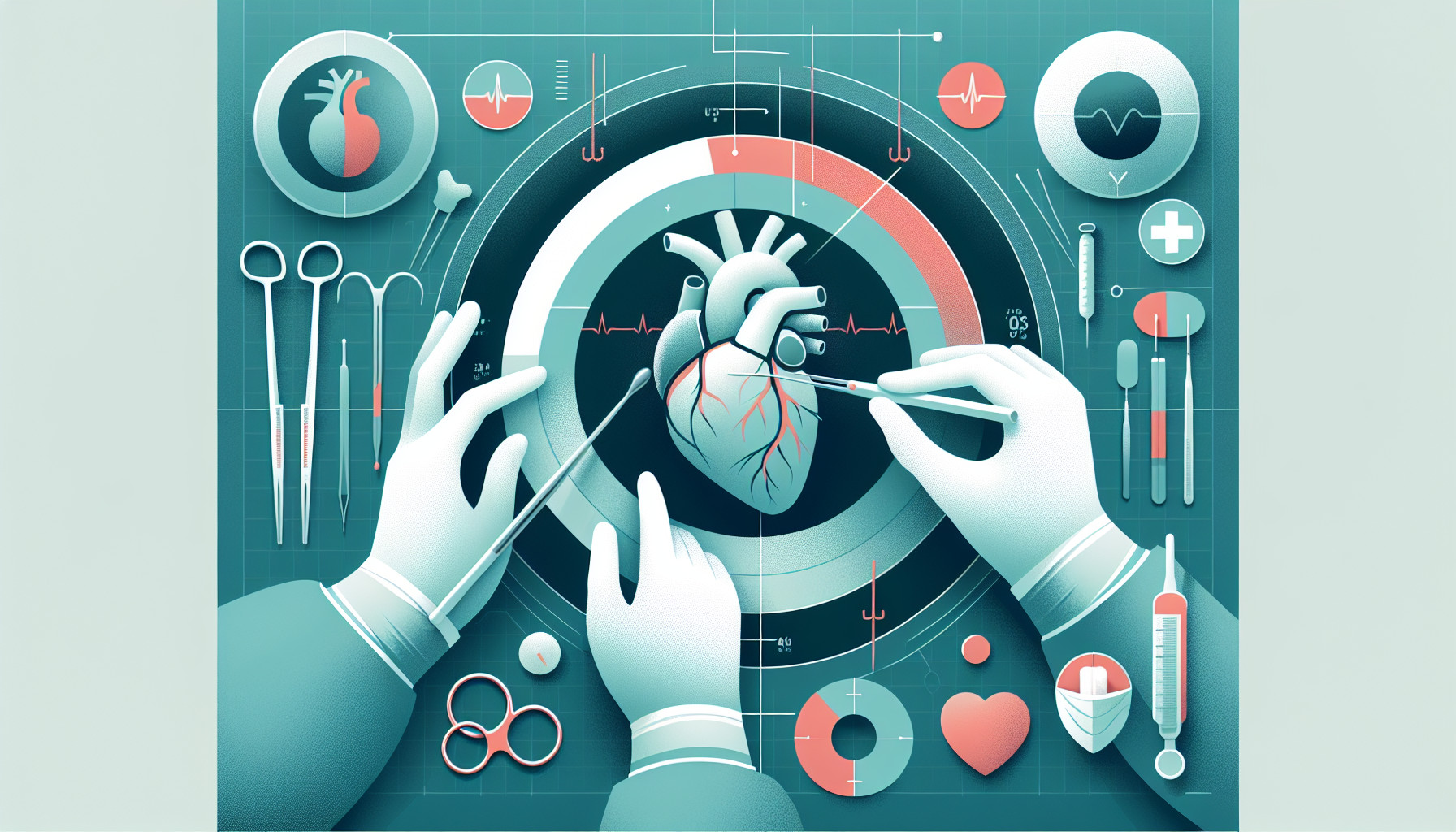Our Summary
This research paper details the testing and validation of a new survey for patients in the UK undergoing a specific heart procedure. The survey, called the Cardiff Cardiac Ablation PROM (C-CAP), was filled out by patients before and after their procedure. The goal of the survey was to assess things like the patient’s expectations, their symptoms, their general health, and how their life has been impacted by their condition.
The study was carried out across three UK sites with over 500 patients filling out the survey before their procedure and just over 400 filling it out afterwards. The surveys were found to be reliable, valid, and responsive.
The results showed that the patients’ symptoms and overall quality of life improved significantly after their procedure. The researchers also calculated the minimum difference in survey scores that would indicate a meaningful improvement in the patient’s condition.
The C-CAP survey could prove to be a valuable tool for understanding how this particular heart procedure impacts patients’ lives in the UK. It can measure both disease-specific and generic factors, providing a comprehensive view of the patient’s experience.
FAQs
- What is the purpose of the Cardiff Cardiac Ablation PROM (C-CAP) survey?
- How many patients participated in the survey and what were the main findings?
- How might the C-CAP survey be used in the future to improve patient outcomes?
Doctor’s Tip
A helpful tip a doctor might tell a patient about cardiac ablation is to make sure to follow all pre-procedure instructions given by your healthcare team. This may include fasting before the procedure, stopping certain medications, and arranging for transportation to and from the hospital. Following these instructions can help ensure the procedure goes smoothly and effectively. Additionally, be sure to communicate any concerns or questions you have with your healthcare team before and after the procedure.
Suitable For
Patients who are typically recommended cardiac ablation are those who have certain heart conditions that are not well controlled with medication or other treatments. This includes patients with:
- Atrial fibrillation: a common heart rhythm disorder where the heart beats irregularly
- Supraventricular tachycardia: a fast heart rate that starts in the upper chambers of the heart
- Ventricular tachycardia: a fast heart rate that starts in the lower chambers of the heart
These patients may experience symptoms such as palpitations, dizziness, chest pain, and shortness of breath. Cardiac ablation is recommended for these patients when medications are not effective in controlling their symptoms, or when the side effects of the medications are intolerable.
It is important for patients to discuss their specific condition with their healthcare provider to determine if cardiac ablation is the right treatment option for them. The C-CAP survey could be a useful tool in helping patients and healthcare providers assess the impact of cardiac ablation on the patient’s quality of life and symptoms.
Timeline
Overall, the timeline of a patient’s experience before and after cardiac ablation can vary, but generally includes the following steps:
Consultation with a cardiologist: Patients experiencing symptoms of arrhythmias or other heart conditions will typically meet with a cardiologist to discuss their symptoms and medical history.
Diagnostic testing: The patient may undergo various tests, such as ECGs, echocardiograms, and Holter monitoring, to determine the underlying cause of their symptoms.
Decision to undergo cardiac ablation: Based on the results of the diagnostic tests, the cardiologist may recommend cardiac ablation as a treatment option.
Pre-procedure preparation: Before the procedure, the patient will receive instructions on how to prepare, which may include fasting and discontinuing certain medications.
Cardiac ablation procedure: The patient will undergo the cardiac ablation procedure, during which catheters are inserted into the heart to destroy abnormal electrical pathways causing arrhythmias.
Post-procedure recovery: After the procedure, the patient will be monitored for a period of time in the hospital to ensure there are no complications.
Follow-up appointments: The patient will have follow-up appointments with their cardiologist to monitor their progress and make any necessary adjustments to their treatment plan.
Post-procedure assessment: Patients may be asked to fill out surveys like the C-CAP to assess their symptoms, quality of life, and overall satisfaction with the procedure.
Overall, cardiac ablation has been shown to significantly improve symptoms and quality of life for patients with certain heart conditions. The use of surveys like the C-CAP can help healthcare providers better understand and address the needs of patients undergoing this procedure.
What to Ask Your Doctor
Some questions a patient should ask their doctor about cardiac ablation may include:
- What is the purpose of the cardiac ablation procedure?
- What are the potential risks and complications associated with cardiac ablation?
- How successful is cardiac ablation in treating my specific heart condition?
- What is the recovery process like after cardiac ablation?
- How long will it take for me to see improvements in my symptoms after the procedure?
- Will I need to take any medications after the procedure?
- Are there any lifestyle changes I should make to support the success of the procedure?
- How often will I need to follow up with my doctor after the procedure?
- Are there any specific warning signs or symptoms I should watch out for after cardiac ablation?
- What are my options if the cardiac ablation procedure is not successful in treating my condition?
These questions can help patients better understand the procedure, its potential outcomes, and what to expect during the recovery process.
Reference
Authors: White J, Withers KL, Lencioni M, Carolan-Rees G, Wilkes AR, Wood KA, Patrick H, Cunningham D, Griffith M. Journal: Qual Life Res. 2016 Jun;25(6):1571-83. doi: 10.1007/s11136-015-1194-1. Epub 2015 Dec 10. PMID: 26659900
